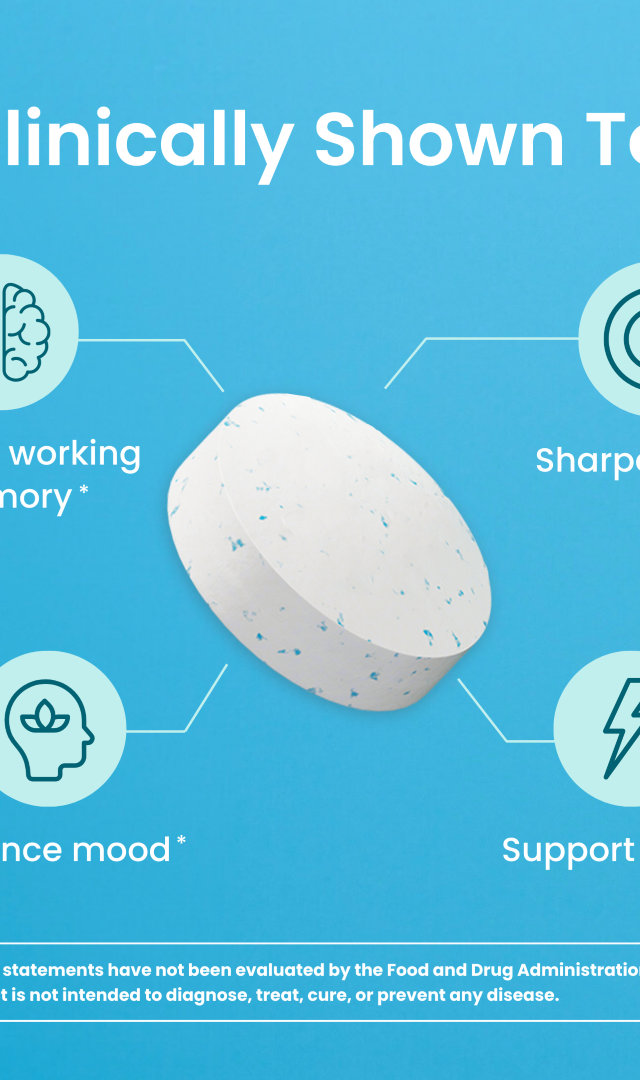Are you tired of constantly feeling hungry and snacking throughout the day? What if we told you there's a simple solution that can help curb your appetite? It's not a miracle pill or a fad diet, but rather something you probably have in your pocket or purse right now - chewing gum! That's right, according to a neuroscientist, chewing gum can actually make you feel less hungry. In this article, we'll dive into the science behind this claim and explore how chewing gum can be a helpful tool for those looking to manage their hunger and cravings. Get ready to chew on some fascinating insights!
The Basic Physiology of Chewing Gum
When we chew gum, we activate the muscles in our jaw, which in turn sends a signal to the brain that food is on its way. This signal triggers the release of certain hormones, including insulin and glucagon, which help to regulate blood sugar levels and promote feelings of satiety, or fullness. Additionally, the act of chewing gum also stimulates the production of saliva, which contains enzymes that can help break down food and aid in digestion.
The Brain's Response to Chewing Gum
However, the effects of chewing gum on appetite and satiety go beyond these basic physiological responses. Neuroscientists have found that chewing gum can actually alter the way our brains process information about food and hunger. In particular, they have discovered that the act of chewing gum activates the insula, a region of the brain that is involved in the perception of taste, smell, and other sensory information related to food.
The Role of the Insula in Hunger Regulation
When the insula is activated by the act of chewing, it sends signals to other parts of the brain, including the hypothalamus and the amygdala, which are involved in the regulation of appetite and emotions. These signals can help to reduce feelings of hunger and increase feelings of fullness, making it easier for people to resist the temptation to overeat.
Studies on Chewing Gum and Appetite
One study conducted by researchers at the University of Rhode Island found that people who chewed gum for 15 minutes before eating consumed 10% fewer calories than those who did not chew gum. Another study, published in the journal Appetite, found that chewing gum can also reduce cravings for sweet and salty snacks, which are often high in calories and can contribute to weight gain.
Possible Explanations for the Effect of Chewing Gum on Appetite
So why does chewing gum have this effect on appetite and satiety? There are a few possible explanations. One theory is that the act of chewing gum tricks the brain into thinking that food is on its way, which can help to reduce feelings of hunger. Another theory is that the act of chewing gum stimulates the production of gut hormones, such as peptide YY and ghrelin, which are involved in the regulation of appetite and feelings of fullness.
The Limits of Chewing Gum as a Weight Loss Strategy
Despite these potential benefits, it is important to note that chewing gum should not be relied upon as the sole strategy for weight loss. While it can be a helpful tool in reducing appetite and promoting feelings of fullness, it is not a substitute for a healthy diet and regular exercise. Additionally, some types of gum may contain sugar or artificial sweeteners, which can contribute to calorie intake and may not be suitable for people with certain dietary restrictions or medical conditions.
Conclusion:
In conclusion, chewing gum can be a helpful tool for reducing appetite and promoting feelings of fullness. The act of chewing stimulates the brain's insula region, which in turn sends signals to other parts of the brain involved in appetite and emotions. This can help to reduce cravings and promote healthier eating habits. However, it is important to remember that chewing gum should not be relied upon as the sole strategy for weight loss. It should be used in conjunction with a healthy diet and regular exercise for optimal results.
It is also important to choose sugar-free gum or gum sweetened with non-caloric sweeteners to avoid adding unnecessary calories to your diet. Additionally, if you have any medical conditions or dietary restrictions, it is important to speak with a healthcare professional before adding chewing gum to your weight loss regimen.
Overall, the science behind chewing gum and hunger regulation is an interesting and promising area of research. While more studies are needed to fully understand the mechanisms behind this phenomenon, the evidence so far suggests that chewing gum can be a helpful tool for those looking to lose weight and improve their eating habits. To learn more about gum and caffeine, read our article The Convenience of Chewable Caffeine.
About the Author

Kent Yoshimura is co-founder & CEO of Neuro, a gum and mint company that enhances your health and wellness in the most convenient, affordable, and portable way possible.
His fascination with the human brain and optimizing performance led him to get a bachelor’s degree in neuroscience at the University of California, San Diego, and after college, continued his career as a multimedia creative, filmmaker and athlete, having trained in Judo with the Japanese Olympic Judo Team and in Muay Thai at Sityodtong in Thailand.
Find him on Instagram here:
@kentaro






















